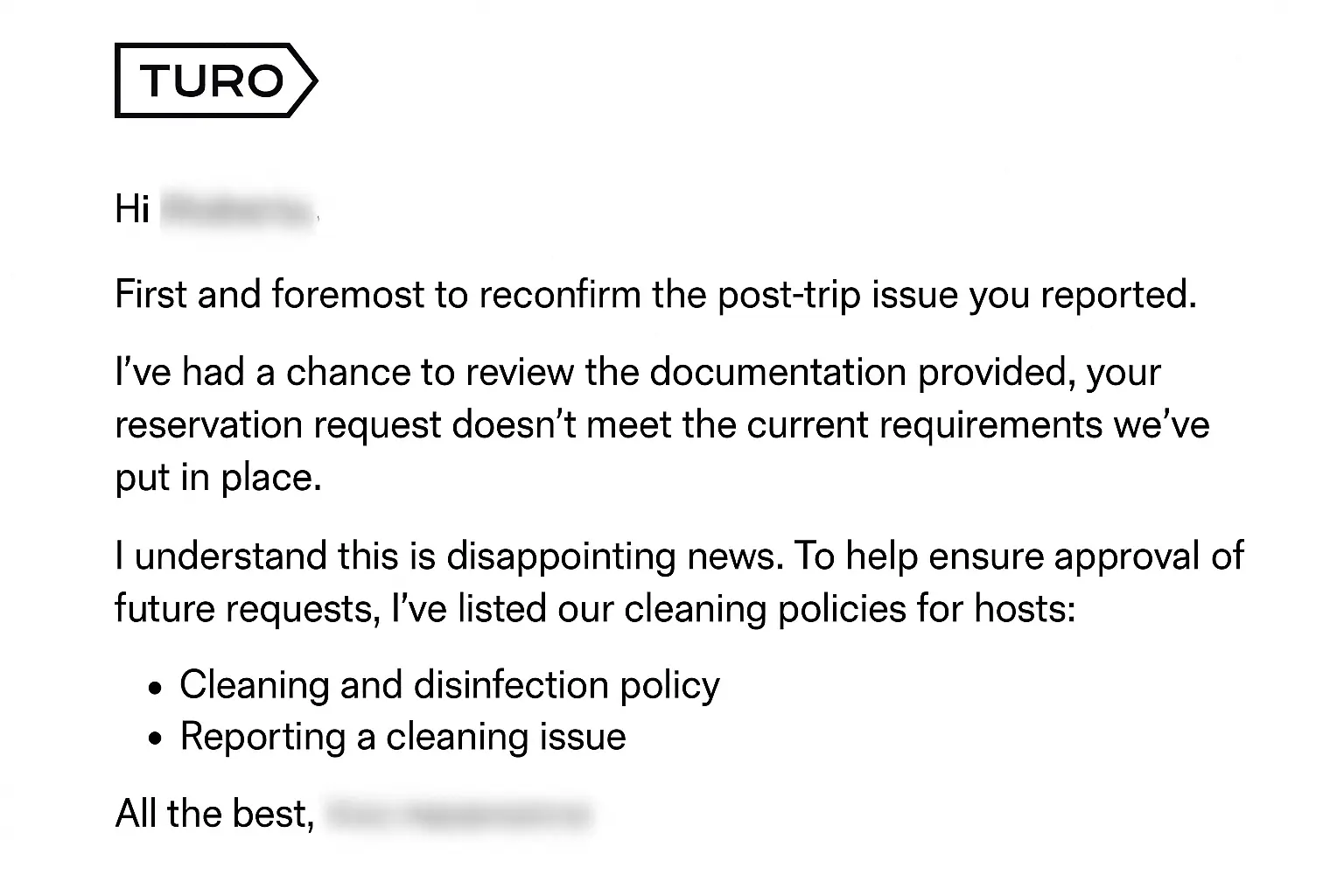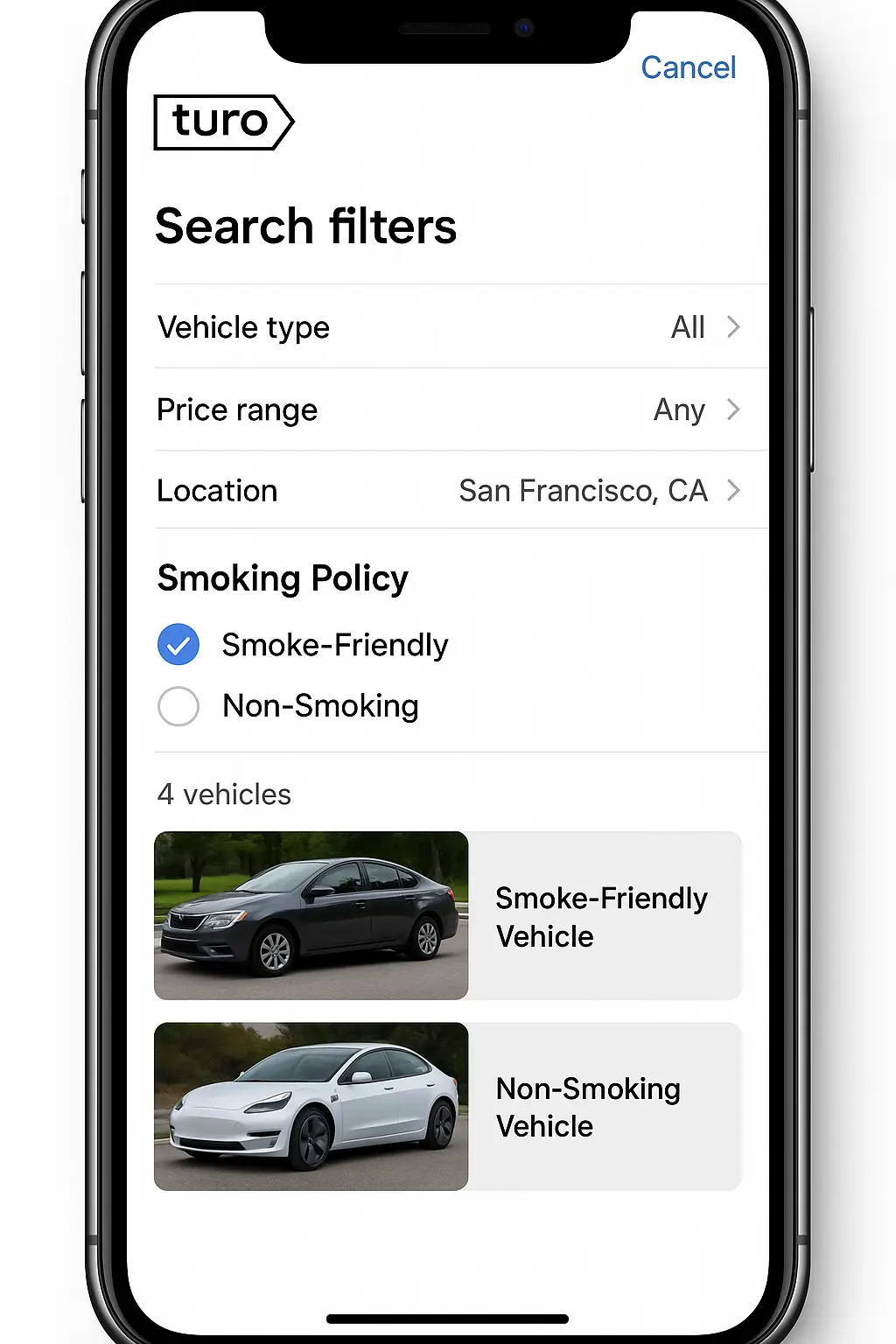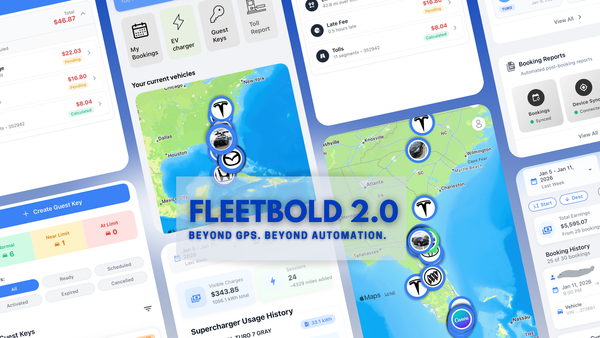Should Turo Have a “Smoke-Friendly Vehicle” Option?

In the world of car sharing, Turo has carved out a niche for providing short-term vehicle rentals with incredible flexibility. Yet, just like in hotels where rooms are marked as smoking or non-smoking, one issue still nags at hosts and renters alike smoking in vehicles. While most hosts have clear policies about no smoking, misunderstandings and unexpected fees sometimes arise. Today, we’re exploring the innovative idea of allowing hosts to designate their vehicles as “Smoke-Friendly” during the listing process. This isn’t about encouraging smoking—it’s about managing expectations and offering clarity from the moment a rental is booked.
Background and Context
Learning from the Hotel Industry
For decades, the hospitality sector has elegantly handled the smoking dilemma by clearly labeling rooms as either “smoking” or “non-smoking.” This distinction has proven effective by:
- Providing Transparency: Guests know exactly what to expect upon arrival.
- Protecting Assets: Hotel owners implement different cleaning and maintenance regimes based on the room type.
- Reducing Disputes: Clear labels reduce the chance of guests inadvertently violating house rules, leading to fewer complaints and extra fees.
By borrowing this model, Turo can bring similar transparency to its platform. Hosts could choose to mark certain vehicles as “Smoke-Friendly” while ensuring other vehicles remain strictly non-smoking, aligning guest expectations with each vehicle’s policy right from the start.
The Current Problem
Misunderstandings and Unexpected Charges
Many Turo hosts strictly enforce a non-smoking policy, yet disputes still occur when a guest smokes in a vehicle. These issues typically result in:
- Unexpected Cleaning Fees: Deep cleaning is necessary to remove smoke odors, causing extra costs that guests might not anticipate.
- Damaged Reputation: Disputes can lead to negative reviews for both the host and, eventually, for Turo as a platform.
- Unclear Communication: Without an official categorization system, the booking process leaves room for ambiguity guests and hosts may interpret the rules differently, leading to conflict.
The absence of a clear option to filter for vehicles that allow smoking means that both parties are left to negotiate and clarify policies after the fact, which is not ideal in a fast-paced sharing economy.
The Proposal: A “Smoke-Friendly Vehicle” Option
What Is the Concept?
The proposed feature would allow Turo hosts to mark their vehicle listings with a simple tag: “Smoke-Friendly Vehicle” or “Non-Smoking Vehicle.” This label would display prominently on a vehicle’s listing page and in search filters, so that:
- Smokers can easily identify vehicles that allow them to smoke without penalty.
- Non-smokers can be assured they are renting a vehicle free of any lingering odors.
It’s essential to stress that this functionality is not intended to promote smoking. Rather, it’s a method to streamline communication about a vehicle’s allowed usage and to help prevent misunderstandings that can disrupt both the guest’s and the host’s experience.
How It Works
Imagine you are a Turo host with multiple vehicles. Perhaps you own a brand-new car where you strictly prohibit smoking due to its pristine condition, and an older, equally reliable car where the risk of smoke-related damage is less of a concern. Using the new feature, you could list the newer car as “Non-Smoking” and the older one as “Smoke-Friendly.” Guests who smoke could filter search results accordingly, choosing a vehicle that meets their needs and avoiding unnecessary conflict.
Benefits for Hosts
Protecting Your Asset
The primary concern for any vehicle owner is preserving the quality and condition of their asset. By clearly designating a vehicle as “Smoke-Friendly,” hosts can:
- Set Clear Guidelines: Guests understand the vehicle’s rules before booking.
- Reduce Disputes: Since the policy is transparent from the outset, hosts are less likely to face complaints or cleaning disputes later.
- Save on Maintenance Costs: Non-smoking vehicles can avoid the extra costs associated with deep cleaning and odor removal, preserving their condition for a higher resale or rental value.
Enhancing Flexibility
With a segmented offering, hosts are empowered to tailor their fleet more precisely:
- Customized Listings: Hosts can target different market segments by offering vehicles that cater specifically to smokers and non-smokers.
- Maximizing Returns: By diversifying options, hosts may achieve higher utilization rates for vehicles that would otherwise be underused if subjected to strict no-smoking rules.
- Improved Reputation: Transparent labeling helps ensure that guest expectations are met, resulting in positive reviews and repeat business.
Benefits for Guests
Informed Decision-Making
For guests, clarity is key. The new “Smoke-Friendly” option would provide clear, upfront information so that:
- Expectations Are Set: Guests who smoke can deliberately choose a vehicle where smoking is permitted, avoiding any unwelcome surprises.
- Avoiding Undesirable Situations: Non-smoking guests can confidently select vehicles where the air remains clear of tobacco smoke, ensuring a more pleasant experience.
- Streamlined Booking: With the added option to filter based on smoking policies, the search process becomes more personalized and efficient.
Enhancing the Rental Experience
When policies are clear from the beginning, both sides benefit:
- Reduced Stress: Clear guidelines minimize post-rental disputes and help both hosts and guests avoid the common pitfalls associated with misunderstood policies.
- Peace of Mind: Guests are aware of exactly what they’re getting, reducing the risk of confrontation or dissatisfaction upon vehicle delivery.
- Value for Money: Avoiding unexpected fees for deep cleaning or damage repairs means that guests get a fairer rental experience, ultimately leading to a higher level of customer satisfaction.
Benefits for Turo as a Platform

Fewer Disputes and Improved Customer Service
A clear categorization of vehicles can help Turo avoid many common pitfalls:
- Reduced Conflict: With explicit labels, many potential disputes about smoking policies could be nipped in the bud, leading to a more harmonious platform.
- Optimized Support: With fewer post-booking issues, Turo’s customer service team can focus on other areas, improving overall efficiency.
- Better Reviews and Ratings: A reduction in conflicts generally leads to higher customer satisfaction, which reflects positively on Turo’s reputation.
Competitive Differentiation
In a fiercely competitive market, any feature that enhances clarity and user experience can set a platform apart:
- Innovative Edge: Being the first car-sharing platform to offer such a nuanced approach could position Turo as a leader in customer-centric innovation.
- Broad Appeal: By catering to both smokers and non-smokers, Turo can broaden its target market and appeal to a diverse range of guests.
- Increased Transparency: Clear policies foster trust and reliability, key factors in building long-term customer relationships in the sharing economy.
How It Could Be Implemented on Turo
Key Features and Functionalities
To integrate the “Smoke-Friendly Vehicle” option, Turo might consider the following features:
- Search Filter:
– Add a filter in the search interface that allows guests to choose vehicles based on the smoking policy.
– Options could include “Smoke-Friendly” and “Non-Smoking” filters, simplifying the selection process. - Listing Label:
– During the listing creation process, hosts can select an option to mark their vehicle as either “Smoke-Friendly” or “Non-Smoking.”
– This label would display prominently on the listing page, along with other key details. - Booking Reminder:
– Incorporate a reminder for guests during the booking process. For example, a prompt could appear, reiterating the vehicle’s smoking policy so that there are no surprises at the time of pickup. - Community Reporting:
– Allow guests to provide feedback specific to this policy. A dedicated review section could help identify whether the vehicle meets the stated expectations. - Analytics Dashboard:
– Provide hosts with data about the performance of their listings based on smoking status. This could include statistics on rental frequency, cleaning issues, or guest satisfaction associated with “Smoke-Friendly” and “Non-Smoking” vehicles.
A Visual Walkthrough (Hypothetical)

Imagine opening Turo’s app and heading to the search filters. Alongside vehicle type, price range, and location, you now see a filter named “Smoking Policy.” Selecting “Smoke-Friendly” updates the listings, displaying vehicles with that tag. For hosts, when creating a listing, a toggle or checkbox would allow them to indicate if the vehicle accommodates smoking. During booking, both the host’s and guest’s applications would remind the renter about the selected policy, ensuring everyone is on the same page before the rental begins.
Addressing Potential Concerns
Not Promoting Smoking
It is crucial to emphasize that the purpose of this option is not to encourage smoking, but to manage logistics and clarify expectations:
- Clear Separation: Just as hotels do not encourage guests to smoke—even if they offer smoking rooms—Turo would use this feature solely for logistical purposes.
- Guest Responsibility: The onus remains on guests to adhere to the policy they have chosen. The feature simply makes that information visible upfront.
- Enhanced Transparency: By clearly delineating which vehicles allow smoking, the platform prevents guests from being inadvertently misled by ambiguous listings.
Avoiding Misuse
Some might worry that a “Smoke-Friendly” label could be abused. To counter this, Turo could implement a verification system:
- Host Accountability: Hosts would be required to verify the label during the listing process, and repeated reports from guests about non-compliance might result in re-evaluation of the listing.
- Automated Checks: Regular feedback prompts and automated checks can help monitor if the vehicle’s condition aligns with its advertised policy.
- Community Moderation: Enabling guests to leave specific reviews regarding the smoking policy can help maintain the integrity of listings and ensure honest communication.
Real-Life Scenario: The Story of Alex
To understand the practical benefits of this feature, consider the story of Alex, a Turo host who owns two vehicles. One is a brand-new convertible with immaculate interiors, and the other is an older model that still works perfectly well but has signs of wear. Alex has always been strict with his convertible—he insists on a non-smoking policy to maintain its condition. However, he recognizes that his older vehicle may not suffer significantly from the effects of smoke.
Before the introduction of this feature, Alex experienced several issues: guests sometimes booked his convertible without reading the full details, leading to disputes and unexpected cleaning fees. In contrast, his older car was often rented by those who smoked, yet there was no official recognition of this usage. After Turo implemented the “Smoke-Friendly Vehicle” option, Alex marked his newer car as “Non-Smoking” and his older car as “Smoke-Friendly.” As a result:
- Guests now clearly understand which vehicle suits their needs.
- Alex receives fewer complaints and incurs fewer cleaning fees on his premium vehicle.
- His overall rating improved because each guest’s experience matched their expectations.
Alex’s story illustrates how a simple label can resolve friction points and create a smoother, more efficient experience for everyone.
Frequently Asked Questions (FAQ)
Q: Does this feature encourage smoking?
A: Not at all. The purpose is solely to clarify vehicle usage policies. It allows hosts to set clear expectations from the start, ensuring that guests book a vehicle that matches their behavior without promoting smoking.
Q: Can guests filter listings by smoking preference?
A: Yes. The proposed interface would include a filtering option where guests can choose vehicles categorized as “Smoke-Friendly” or “Non-Smoking.”
Q: What happens if a guest misuses the policy?
A: The responsibility lies with both parties. If a guest who booked a “Smoke-Friendly” vehicle misuses the privilege beyond the stated terms, standard dispute resolution processes and cleaning fees would apply. Similarly, hosts must ensure they accurately represent the vehicle’s condition.
Q: Will this label affect rental pricing?
A: Indirectly, yes. Vehicles designated as “Non-Smoking” might command higher rental prices due to their maintained condition, while “Smoke-Friendly” vehicles could be priced differently based on their upkeep and market demand. Ultimately, pricing remains at the discretion of the host.
Q: How can hosts verify that their vehicle’s condition matches the label?
A: Turo could introduce periodic reviews and guest feedback specific to the smoking policy. Hosts with repeated discrepancies might undergo additional verification to ensure accurate labeling.
Q: Is participation in this feature mandatory for all hosts?
A: No. The option is completely voluntary. Hosts choose whether or not to use the “Smoke-Friendly” designation based on their vehicle’s characteristics and personal policies.
Final Thoughts
The introduction of a “Smoke-Friendly Vehicle” option on Turo represents a small but potentially transformative innovation. By borrowing a proven model from the hotel industry, Turo can provide clarity, reduce conflicts, and tailor the rental experience to meet the diverse needs of its community.
For hosts, this feature offers a straightforward method to segment their fleet and protect high-value vehicles from inadvertent smoke damage. For guests, it means making informed choices without the stress of unexpected fees or disputes over usage policies. And for Turo itself, it means fewer conflicts, smoother customer service processes, and a competitive edge in a crowded market.
In today’s fast-paced sharing economy, clear and transparent communication is paramount. Just as hotels have long recognized that a simple, well-differentiated policy goes a long way, Turo now has the opportunity to refine its service. Offering a “Smoke-Friendly Vehicle” option ensures that every transaction is built on trust, accuracy, and clear expectations fostering a better experience for everyone involved.
Ultimately, this innovative approach underlines a larger point: even small features, when designed thoughtfully, can have a significant impact. In an industry where customer satisfaction is crucial for long-term success, providing clear, tailored options is more than just a convenience it’s a strategic advantage. As Turo continues to grow and evolve, embracing solutions like this could set a new standard for transparency and efficiency in the car-sharing world.
Conclusion
In conclusion, the proposed “Smoke-Friendly Vehicle” option isn’t an endorsement of smoking it’s a smart, practical solution for managing expectations and reducing conflicts in the Turo marketplace. Through clear labeling and intuitive filtering options, hosts can protect their vehicles and optimize earnings, while guests can choose a rental experience that truly fits their lifestyle.
This feature would empower hosts to offer a wider variety of rental options, cater directly to a specific segment of the market, and ultimately create fewer disputes over vehicle usage. In a platform that thrives on transparency and customer trust, even a seemingly minor adjustment like this could result in major improvements in user satisfaction and operational efficiency.
We encourage Turo and its community to consider the benefits of this approach. By learning from other industries and implementing clear, user-friendly policies, the entire ecosystem can enjoy a more harmonious, efficient, and ultimately rewarding rental experience.
Thank you for reading this deep dive into the potential benefits of a “Smoke-Friendly Vehicle” option on Turo. We welcome comments, thoughts, and feedback from all hosts and renters as we explore how this innovative idea might reshape expectations in the car-sharing world. Share your experience and let’s continue the conversation on creating a more transparent and efficient rental marketplace.
This comprehensive proposal outlines how a seemingly simple adjustment can provide far-reaching benefits from reducing disputes and cleaning costs to enhancing overall customer satisfaction. With clear implementation strategies, community-driven feedback, and careful consideration of potential challenges, a “Smoke-Friendly Vehicle” option might just become one of the most welcomed features on Turo, proving once again that clarity and transparency are the cornerstones of a great rental experience.
By offering this option, Turo can demonstrate its commitment to innovation and customer care. Whether you’re a host looking to protect your investment or a guest seeking a comfortable and transparent rental experience, the introduction of a “Smoke-Friendly Vehicle” option stands to benefit the entire community—one clear label at a time.
This article has explored the idea from every angle, presenting a detailed look at how implementing a “Smoke-Friendly Vehicle” option would not only solve existing problems but also enhance the overall user experience. As the sharing economy continues to evolve, creative solutions like this help set new standards for clarity, flexibility, and customer satisfaction. Let’s move forward together towards a more informed and conflict-free car rental experience.





